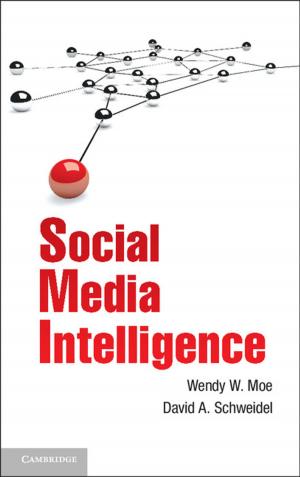The Modern Prison Paradox
Politics, Punishment, and Social Community
Nonfiction, Social & Cultural Studies, Social Science, Crimes & Criminals, Criminology, Political Science| Author: | Amy E. Lerman | ISBN: | 9781107461789 |
| Publisher: | Cambridge University Press | Publication: | August 19, 2013 |
| Imprint: | Cambridge University Press | Language: | English |
| Author: | Amy E. Lerman |
| ISBN: | 9781107461789 |
| Publisher: | Cambridge University Press |
| Publication: | August 19, 2013 |
| Imprint: | Cambridge University Press |
| Language: | English |
In The Modern Prison Paradox, Amy E. Lerman examines the shift from rehabilitation to punitivism that has taken place in the politics and practice of American corrections. She argues that this punitive turn has had profoundly negative consequences for both crime control and American community life. Professor Lerman's research shows that spending time in America's increasingly violent and castigatory prisons strengthens inmates' criminal networks and fosters attitudes that increase the likelihood of criminal activity following parole. Additionally, Professor Lerman assesses whether America's more punitive prisons similarly shape the social attitudes and behaviors of correctional staff. Her analysis reveals that working in more punitive prisons causes correctional officers to develop an 'us against them' mentality while on the job, and that the stress and wariness officers acquire at work carries over into their personal lives, straining relationships with partners, children, and friends.
In The Modern Prison Paradox, Amy E. Lerman examines the shift from rehabilitation to punitivism that has taken place in the politics and practice of American corrections. She argues that this punitive turn has had profoundly negative consequences for both crime control and American community life. Professor Lerman's research shows that spending time in America's increasingly violent and castigatory prisons strengthens inmates' criminal networks and fosters attitudes that increase the likelihood of criminal activity following parole. Additionally, Professor Lerman assesses whether America's more punitive prisons similarly shape the social attitudes and behaviors of correctional staff. Her analysis reveals that working in more punitive prisons causes correctional officers to develop an 'us against them' mentality while on the job, and that the stress and wariness officers acquire at work carries over into their personal lives, straining relationships with partners, children, and friends.















